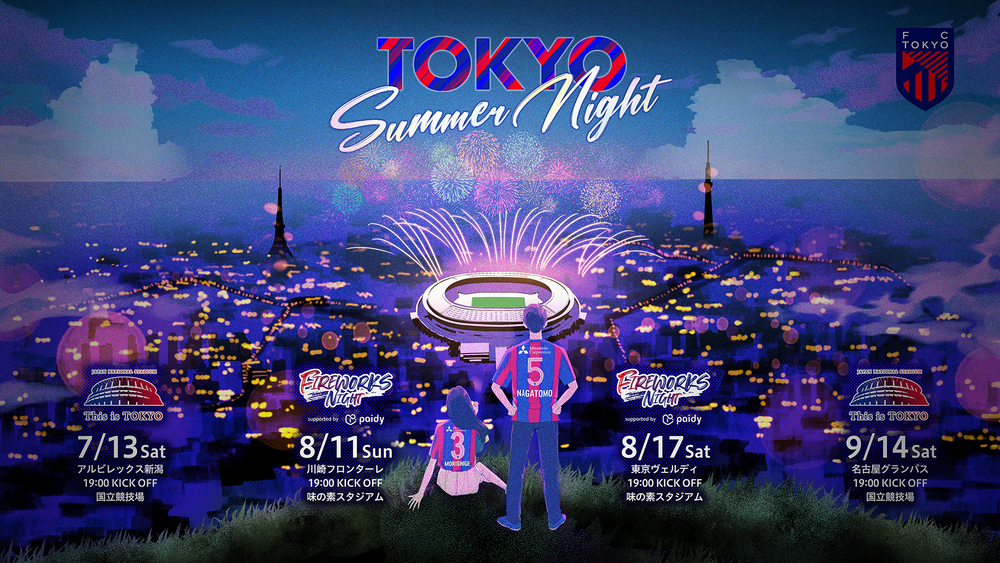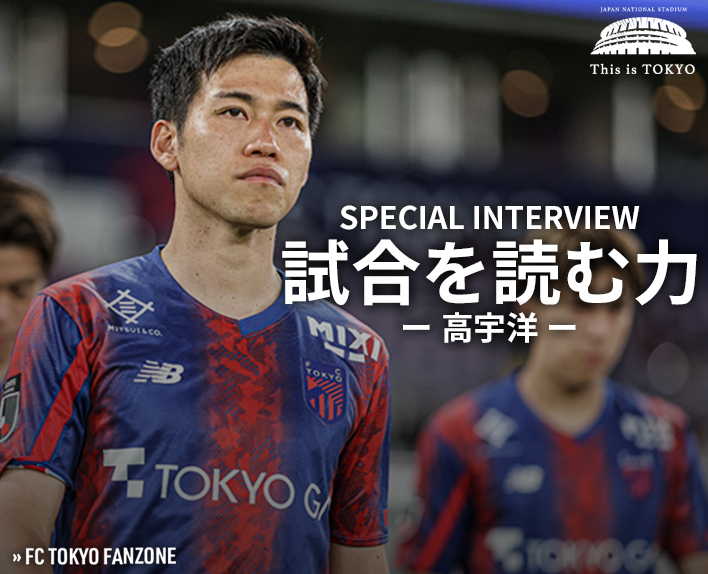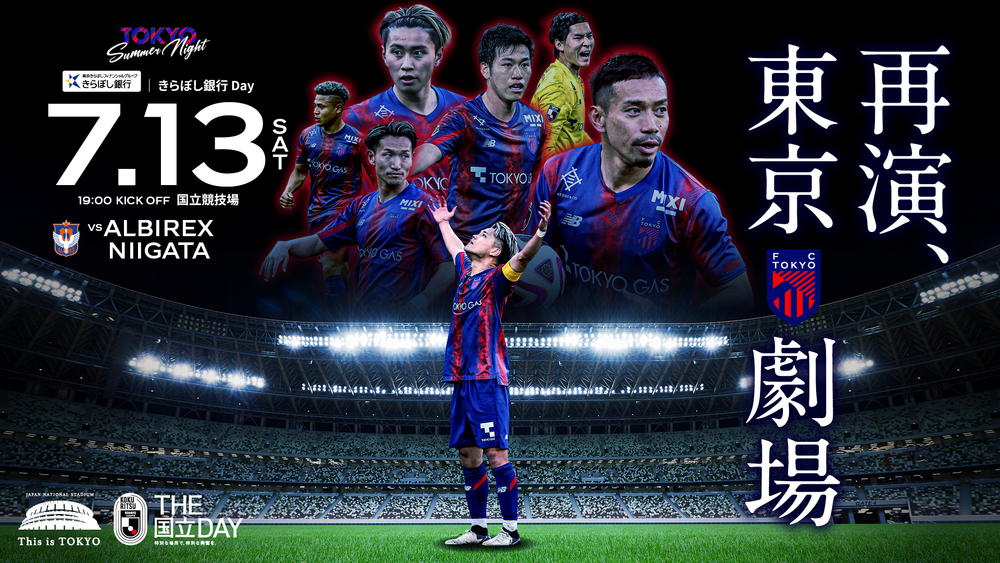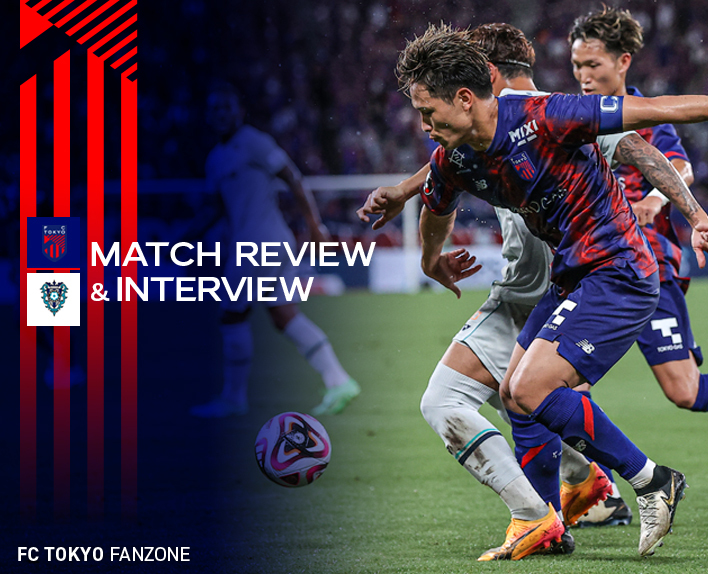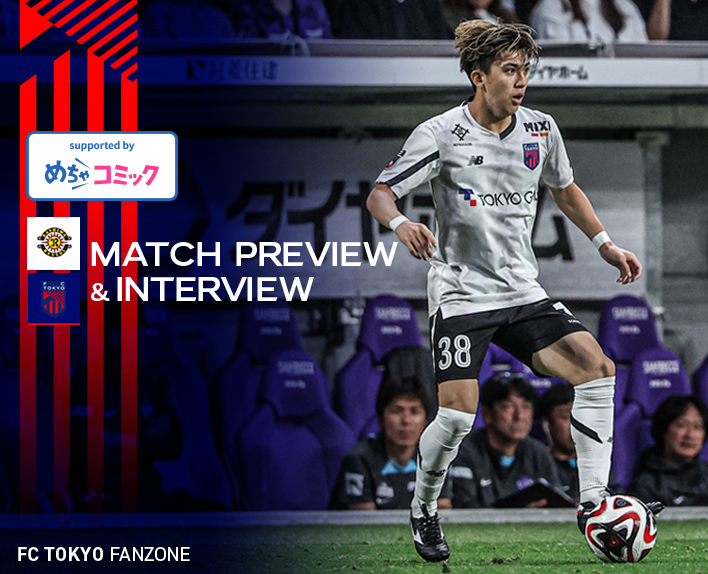Number 8 is in the center of the pitch.
He pulls out the ball while making big gestures and repeating hand movements, searching for a switch in attack through precise passing exchanges. If you watch a Tokyo game, you will immediately notice his presence.
This season, Takahiro KO joined Albirex Niigata on a full transfer. Although he struggled to get playing time at the beginning of the season, he took advantage of the opportunities that came his way and became an essential player as a strong linkman for the blue and red team.
His invisible weapon──. That is the power to read the game. In order to stack up victories against teams that often decide games based on individual abilities, we are trying to add the power of adjustment and communication.
Both individuals and teams are still in the process of development. However, he clearly sees the path for Tokyo to become stronger.
Text = Tomoaki Aoyama
──First, how do you look back on the battle so far?
Looking back at the first half, there were many games where I feel like we could have gone higher, taken more points, and had to win. However, on the other hand, there were also games where we were able to come back and draw in difficult situations, and even win. In order to go even higher, it is absolutely necessary to minimize our ups and downs and go on a winning streak. Also, I strongly believe that we need to win at home in the second half, so I think that's how we can go higher.
──When looking back overall, there are times when we play good soccer and times when we struggle to find attacking options. What have we been building since the beginning of the season and what do you feel are the remaining challenges?
I also feel that very much. As I said earlier, there are waves in terms of content. How much can we aggressively start and challenge? I think that when we are doing well, we can play our own soccer and get on a roll. However, when things are not going well, we tend to defend and have a hard time challenging. When our intention to receive the ball is weak and our reaction to second balls is slow, it becomes a difficult game.
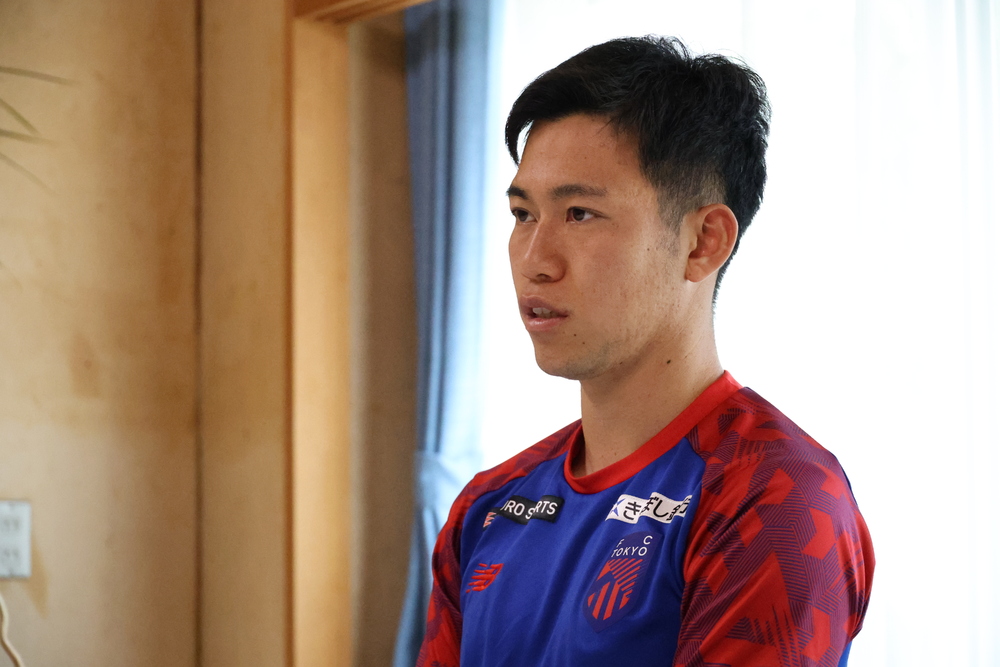
──I want to think about solving the problem there. As an impression, we struggle in games where we cannot switch to attacking or change the game after entering the attacking third, even if we are connecting the ball.
I would like to add a little more rhythm as a player, so I think it would be best to use players who are easy to use and if they can take the back, it would be good to run and use them easily. Tokyo has many players with high individual abilities, so there are situations where they can break through even as individuals. Of course, that is not a bad thing, so it would be good to use both individual strength and organization to create rhythm. We will enter the summer season from here, so I think it will be important to consider how to fight.
──On the other hand, when I looked at the defense, I was concerned about the team's wastefulness in conceding points.
Honestly, there were many easy goals conceded. There were few scenes or goals completely destroyed, so most of them were self-destructive goals. I think it's a problem of concentration. Recently, these types of goals have decreased, so I want to make adjustments so that each individual can take responsibility and continue to do their best.
If we can reduce easy goals, the team's performance will also improve.
That is definitely true. I think we can see improvement by reducing the number of goals conceded. The top teams have a low number of goals conceded, so that is an area we must focus on. We have been able to make gradual improvements, and recently there has been an impression of being more willing to put our bodies on the line in front of goal and having a higher level of concentration.
──Takashi has transferred to Tokyo from this season, and there was a time when he struggled to get playing time at the beginning of the season.
The most difficult thing about moving to Tokyo was playing while moving. Albirex Niigata was a team that played while maintaining the framework of the team and each individual's position. In Tokyo, it was more of an individual from the organization, and individuals were free to move around, so that was a struggle.
──I got my first chance to play in the Avispa Fukuoka match in the 4th round of the 2024 Meiji Yasuda J1 League. By bringing the team their first victory of the season in this match, I will become a full-fledged "linkman" in blue and red from there.
Personally, I think that match against Avispa Fukuoka was a turning point. I had heard that we hadn't won in Fukuoka for about 20 seasons, so I thought "we've got this." I felt that we were gradually improving during camp and practice matches, and the team hadn't won in the first 3 matches of the season, so I was preparing myself to be ready to play at any time. Rather, it was a match where I approached it with the determination that "if I can't get results here, my life in Tokyo will be over." I think it was a very good game in terms of both content and results, and we were able to show what we had prepared for.
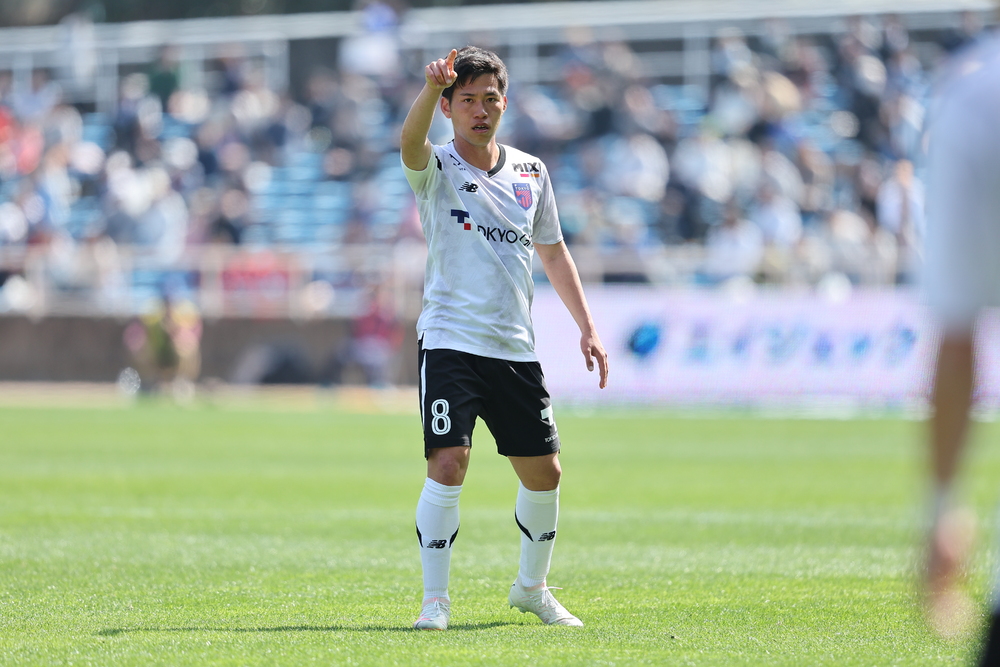
──Player Takahashi, who is acting as the team's linkman as a midfielder, seems to be constantly giving instructions through gestures and body language during the game. What do you see, feel, think, and focus on while on the pitch? Please tell us about your thoughts and actions.
I personally think that my position is to connect with those around me, so I always have to be involved in both offense and defense. Speaking is the most important thing for me, it's a given. In order to do that, "seeing" is necessary. Of course, it's important to grasp the flow of the game during the match, but I also think about how to design the 90 minutes, how to move the team in a good direction, and whether we can calculate how to win. It's about how to feel the flow during the match. Soccer is about having an opponent, so while aiming for our own soccer, we also communicate while considering the opponent's system, condition, and our own situation.
──Earlier, I also used the term "linkman", but there is an impression that you are connecting the strengths of each player as a defensive midfielder.
Coach Peter CKLAMOVSKI's football is a fast vertical attacking style, but personally, I want to create a good rhythm there. It is absolutely necessary to use both fast vertical attacks and attacks that control time and the ball. I have talked with the coach about this and he has told me, "You can make decisions on the pitch," so I am conscious of playing in an organized manner while connecting well with the players around me.
──In the J1 League Sec. 21 match against Hokkaido Consadole Sapporo, I heard that in the second half, you and Riki HARAKAWA talked about "it's the crucial moment because the opponent's energy is dropping" and the team increased the pressure. Do you feel like you have improved your ability to read the flow of the game?
There are quite a few of them there. There are a lot of players with strong individual skills in Tokyo, and it's about how to connect them. I think Tokyo is a club that is expected to win more, so I think I have developed a strong sense of controlling the game and getting closer to victory. While talking with Muriqui, I realized that the opponent was loosening up during that time, so we were talking about how "this is the time to finish them off".
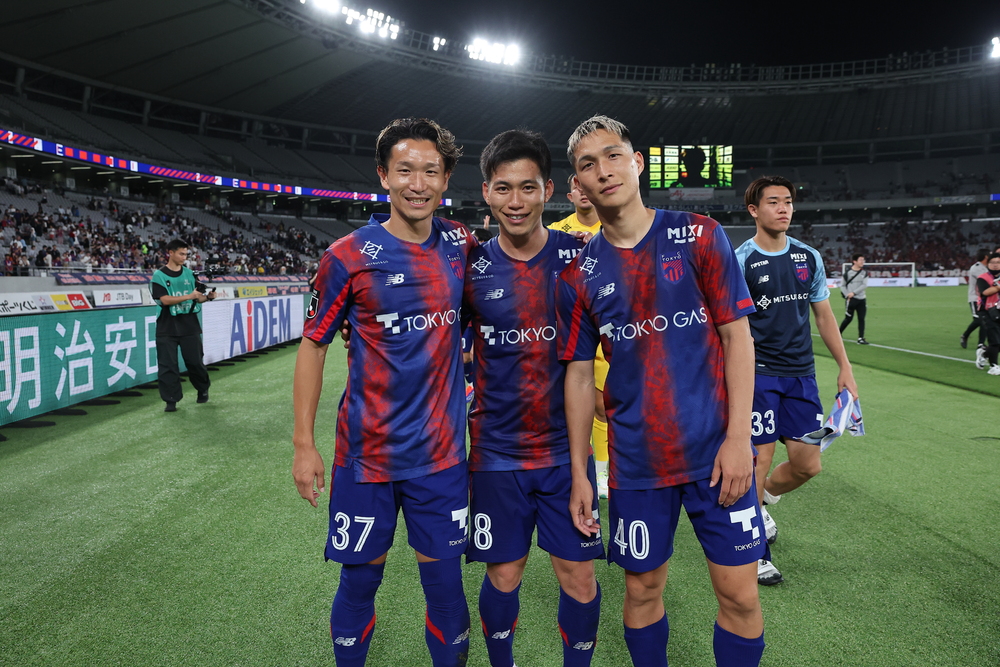
──Did coming to Tokyo change your mindset in terms of focusing on reading the flow of the game?
Definitely changing. I feel again how important it is to see those aspects as a defensive midfielder since I came to Tokyo.
──How can we handle it when the opponent comes up with a Tokyo strategy and things don't go well? I think that will be a major point in the second half of the season.
There will definitely be games throughout the season where we are forced into a disadvantage, like the away match against Shonan Bellmare in Sec. 19. The ability to win in such matches is extremely important, so it was significant to secure 3 points there. However, playing several games like that can be tough both physically and mentally (laughs). As I mentioned earlier, it's crucial to reduce the waves as much as possible. As a team, we need to keep those difficult periods at zero. Additionally, it's necessary to discuss and make adjustments during halftime and after the match, but the ability to sense and adjust during the game based on the atmosphere and rhythm is absolutely essential, and what actions we can take while making those adjustments becomes important from here on. We are gradually getting better at it, but I still feel there are areas where we lack strength, so as a team, and personally, I want to be more aware, communicate more, and work to connect the team effectively.
- As a team, the one-touch passes and vertical passes of Takase have become the switch for our attack, changing the rhythm.
This season, there have been quite a few balls that have been challenged in the attacking third. There are scenes where this has led to successful goals. With many strong players in the front line, I want to supply them with good situations while challenging. The only thing is that we need to improve our way of losing the ball. As long as we try in the front line, we can recover the ball, so I want to continue challenging while focusing on improving the quality as an individual.
──Well, on July 13th there will be a match against Niigata at the Japan National Stadium.
The atmosphere of the Japan National Stadium is truly amazing. I also thought the player entrance production was incredible, and with many fans and supporters coming, the motivation is high. I understood that they use projection mapping during the huddle. It's definitely entertaining (laughs).
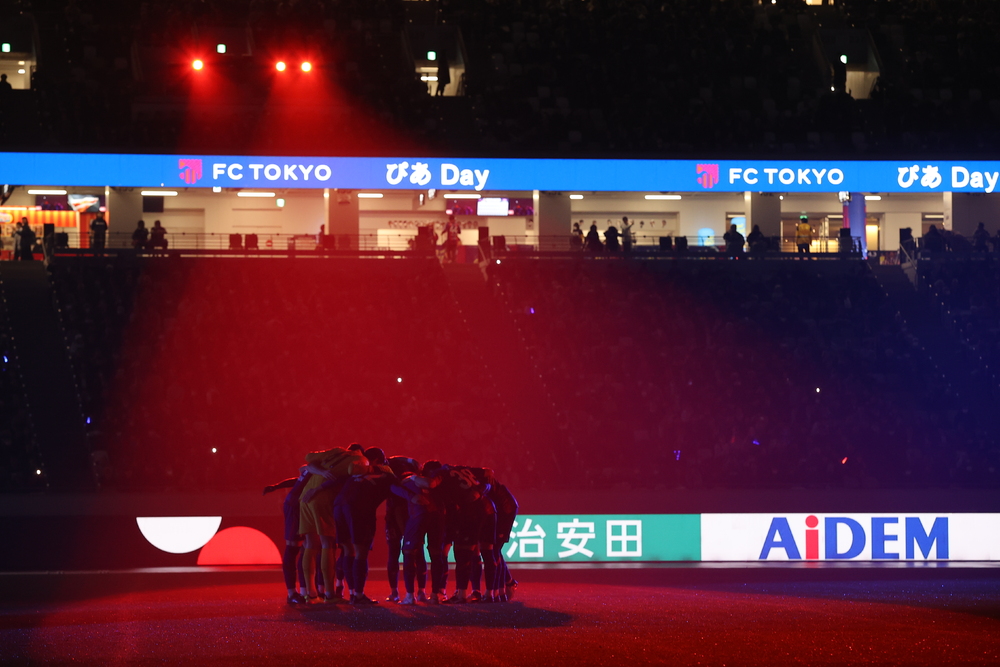
──Speaking of the Japan National Stadium, there was a "phantom goal" in the Urawa Reds match (J1 League Sec. 7). It was a beautiful mid-range shot, but...
There it was (laughs). It was cancelled because (Kuryu) MATSUKI was in an offside position.
──I still haven't been able to score my first goal in Tokyo. I have the impression that I am completely the backbone when it comes to creating the game, but personally, I also want to do the job of deciding the game, such as finishing and assisting.
I still have the desire to aim for it, and I haven't been able to take many shots, so I do want to get into the goal area more. However, as a basic premise, I value risk management and team balance, so if there is a chance, that's how I feel.
- This season, the team plays a style of soccer where the opposite side back enters the cross of the side back, so risk management in the back is still the key.
Yes, that's right. This year, there are many scenes where the fullbacks go up and enter the penalty area, so it's inevitable that us midfielders will have to stay back and maintain balance. In addition, I want to do decisive work such as the final pass and shooting. I think if the midfielders can score, the team will become easier, so I want to always be conscious of aiming for mid-range shots.
──The opponent is the Niigata match against the former team. We won away last time.
I want to win again this time and definitely achieve a season double. I often watch Niigata's games and I think they are a wonderful team. It seems that everyone, both players and staff, are fighting without wavering while valuing the part of building up by connecting the ball.
──So, how will we finish this time?
It's about where we block and how we press. When we played away, my plan worked really well. It depends on the opponent's players, but we want to do well by watching the flow on the pitch and thinking about it this time too.
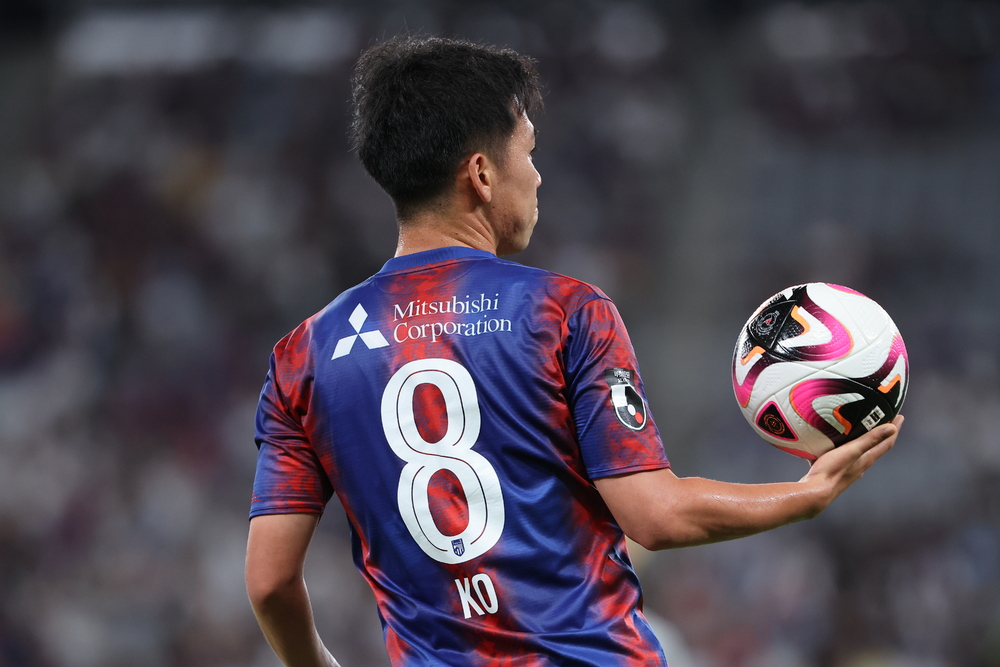
──What do you think about the possibility that Tokyo holds this season?
In the first half, there were games where we could have earned more points, so if we can develop the strength to win those matches and the overall strength as a team, we should be able to rise even higher. Also, the importance of winning at home is crucial. Starting the second half with a win against Sapporo at Ajinomoto Stadium, the match against Fukuoka, which was a home game series, was definitely a game we wanted to win consecutively, but we ended up losing. I personally feel that we need to become a team that can consistently win those kinds of matches. I believe the term 'ability to adjust' will continue to be a keyword, so as a team and as individuals, we need to be more flexible and aware of our opponents. Personally, I want to make a stronger presence in both offense and defense. First, I want to focus on winning each match without getting too emotional, keeping my feet on the ground, and aiming to win each game decisively.
